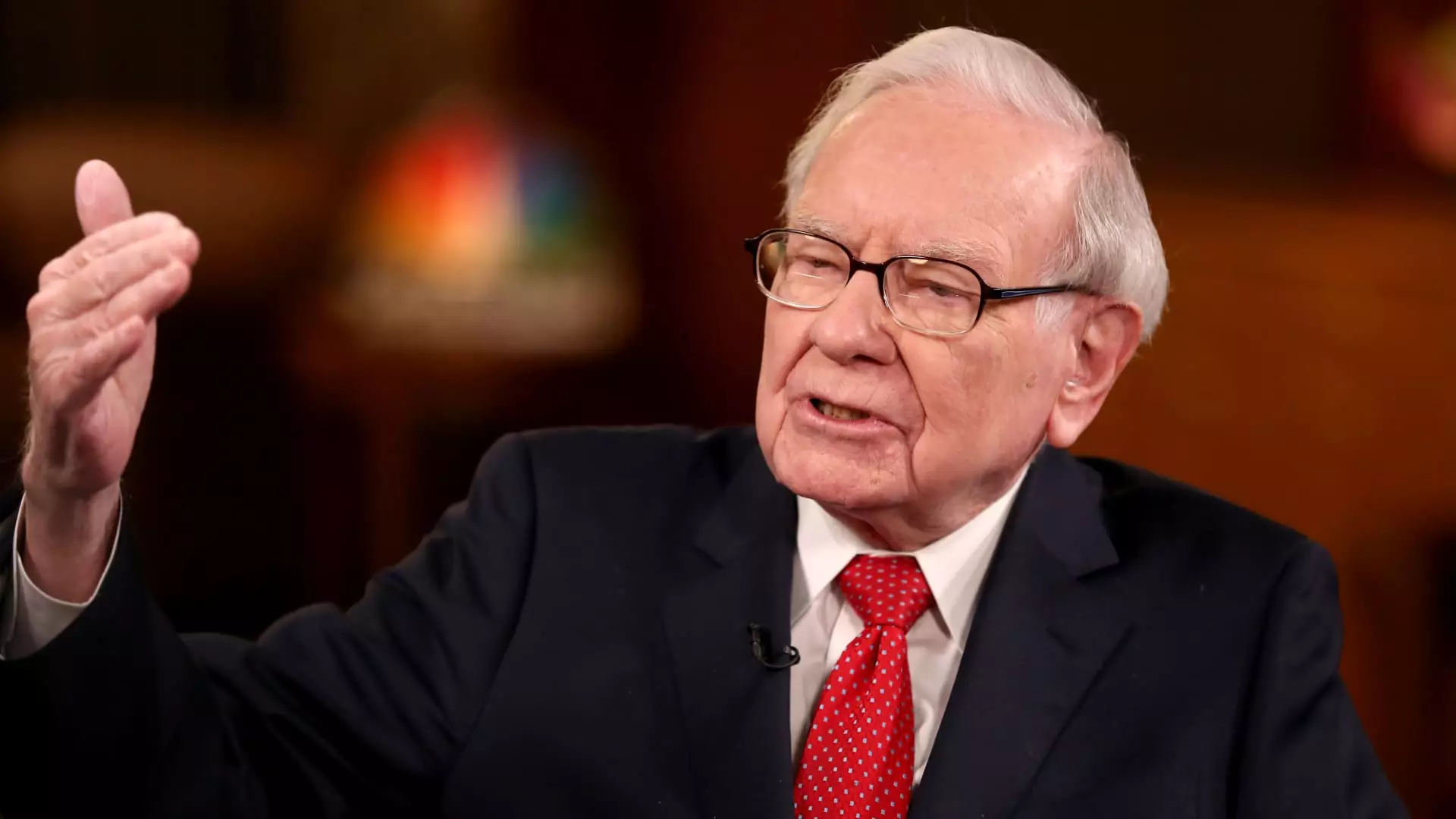In an age saturated with social media flying at the speed of light, the spread of misinformation has reached unprecedented levels. A recent example involving Warren Buffett and former President Donald Trump highlights this issue, demonstrating how unverified posts can distort factual realities and muddy public discourse. When Trump shared a video on Truth Social purporting that Buffett endorsed his economic strategies, the implications of such misinformation extend far beyond simple politics; they represent a significant threat to the integrity of financial discussions and trust in established economic voices.
Trump’s share on Truth Social surged into public visibility, as it suggested that he was intentionally orchestrating a stock market drop to manipulate economic conditions for a strategic advantage. The video not only claimed that Buffett supported this narrative but also misrepresented the investor’s philosophy in a way that could mislead followers of both figures. This moment captures a broader danger: when powerful voices wield untruths, the chorus of public opinion can easily become miscalibrated.
The Role of Influencers and Echo Chambers
When examining why these types of narratives grip the public’s attention, we must consider the role of social media influencers and their platforms, which serve as echo chambers for sensationalist claims. The poster of the video, known as @AmericaPapaBear, and its subsequent dissemination through platforms like TikTok and X (formerly Twitter), exemplify how quickly incorrect information can be propagated. It is terrifying how a carefully crafted narrative can become accepted truth in the social media landscape, especially given Trump’s historical ties to populist movements and how they capitalize on fears and misconceptions.
Buffett’s denial of any commentary related to the claims made in the video reinforces the importance of authority in navigating misinformation. His statement, issued through Berkshire Hathaway, emphasized a clear message: “All such reports are false.” However, the mere act of denying a claim does not erase its existence in the minds of many people. The damage done by viral misinformation does not easily fade; it can sow doubt about reputable voices in finance and disrupt rational debate about economic policies.
The Dangers of Economic Misrepresentation
Beyond the immediate implications for the individuals involved, the misinformation raised in this incident reflects a troubling trend in how economic reasoning is communicated to the public. When endeavors like tariffs are framed loosely by those in power, they distort the reality of the economic landscape and give rise to misunderstandings about their impacts on consumers and industries. Buffett’s prior characterizations of tariffs as “an act of war” reveal a fundamental disagreement with the economic practices favored by Trump.
For Buffett, the urgency to combat mischaracterization stems from a long-standing position that resists protectionism in favor of a more global marketplace where free trade benefits the many. His consistent criticism of tariffs showcases his awareness of the interconnectedness of global economies—insights that often get lost in sensational narratives. When leaders champion policies based on faulty premises, it creates an illusion of consensus that is alarming for informed public discourse.
Berkshire and the Future of Investing
The broader context of Buffett’s situation sheds light on his cautious stance in the current investment environment. Over the past year, Berkshire Hathaway has responded to market fluctuations with a staggering war chest of over $300 billion in cash reserves. This shift mirrors Buffett’s prudent approach to investment and risk management amid economic uncertainty. His actions signal caution, reflecting a potentially turbulent market driven by the misinformation swirling around economic themes.
In choosing not to engage with immediate media speculation, Buffett has taken a more strategic approach, reminding us that clarity in economic discussion requires more than just participation; it necessitates responsible engagement. By staying silent until Berkshire’s annual meeting on May 3, he emphasizes the need for a thoughtful analysis rather than knee-jerk reactions to social media claims.
As Buffett’s principles clearly demonstrate, the responsible navigation of misinformation is not merely an economic imperative but a societal one. The ability to discern facts and fiction remains crucial in a world characterized by rapid communication and widespread misrepresentation. We must collectively strive to cultivate a culture that prioritizes truth, fosters critical examination of claims, and values the insights of esteemed figures in economics over viral, yet misleading, narratives.

